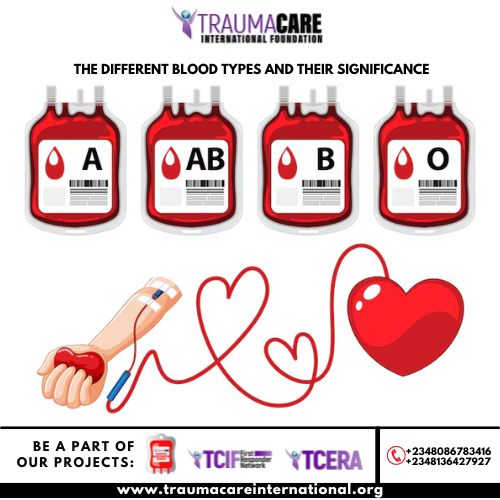Blood types are determined by the presence or absence of certain molecules called antigens on the surface of red blood cells. The most well-known blood typing system is the ABO system, which categorizes blood into four types: A, B, AB, and O. Another important factor in blood typing is the Rh factor, which determines whether a person is Rh-positive (+) or Rh-negative (-). The combination of ABO and Rh factors gives rise to the eight common blood types: A+, A-, B+, B-, AB+, AB-, O+, and O-.
Here's a breakdown of the different blood types and their significance:
1. Blood Type A: People with blood type A have A antigens on their red blood cells and anti-B antibodies in their plasma. This means they can receive blood from donors with type A or O (with A being preferable) and can donate blood to individuals with type A or AB.
2. Blood Type B: People with blood type B have B antigens on their red blood cells and anti-A antibodies in their plasma. They can receive blood from donors with type B or O (with B being preferable) and can donate blood to individuals with type B or AB.
3. Blood Type AB: People with blood type AB have both A and B antigens on their red blood cells but neither anti-A nor anti-B antibodies in their plasma. AB individuals are considered universal recipients because they can receive blood from donors of any blood type (A, B, AB, or O), but they can only donate blood to individuals with type AB.
4. Blood Type O: People with blood type O have neither A nor B antigens on their red blood cells but have both anti-A and anti-B antibodies in their plasma. Type O individuals are considered universal donors because their blood can be given to people with any blood type (A, B, AB, or O). However, individuals with type O can only receive blood from donors with type O.
5. Rh Factor: The Rh factor refers to the presence or absence of the Rh antigen on the red blood cells. Rh-positive individuals have the Rh antigen, while Rh-negative individuals lack it. Rh-positive people can receive Rh-positive or Rh-negative blood, whereas Rh-negative individuals can only receive Rh-negative blood.
Understanding blood types is crucial in blood transfusions to ensure compatibility between the donor and the recipient. If incompatible blood types are mixed, the recipient's antibodies may attack the transfused blood cells, causing a potentially life-threatening reaction.
It's important to note that blood typing systems go beyond the ABO and Rh factors. There are other less common blood group systems, such as the Kell, Duffy, and Kidd systems, which are relevant in specific medical situations or for more precise matching in certain cases, such as organ transplantation.
If you have any specific questions or need further information, feel free to ask!
For more information;
Call: +234808 678 3416 or +2348136427927
Email: [email protected],
[email protected] CLICK HERE TO SIGN UP
Download the TCERA user app today.
https://bit.ly/tceraAndroid
https://bit.ly/tcera-IOS





What do you think?
0 Responses
To Comment, you must Sign In
Be the First to Post on this Topic